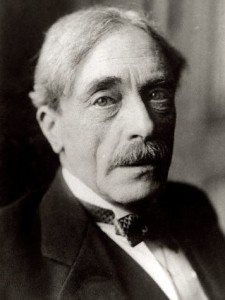Paul Valéry is — along with the other Paul, Éluard — one of my favorite French poets of his time. And he is also a valuable source of research advice. Here are two of his aphorisms:
“All that is simple is false, all that is not simple is useless.” (“Tout ce qui est simple est faux, tout ce qui n’est pas simple est inutilisable.”)
“A work is never achieved — meaningless word — but abandoned.” (“Un ouvrage n’est jamais achevé — mot qui n’a aucun sens, — mais abandonné;” sometimes also liberally translated as “A poem is never finished, merely abandoned,” or some such variation.)
 Each of these captures an essential part of the research process. The first one points at an inescapable tension, that between utility and complexity. A simple argument often has a certain “falsity” to it, as it leaves out important parts of the world. Simple arguments are powerful but often blunt. A complex argument, though perhaps it captures the world in more realistic and nuanced ways, is often useless. Complex arguments often have so many moving parts they lose generalizability. Aiming at a compromise between the opposite pulls of simplicity and complexity is central to writing a successful piece of scholarship — be it a term paper or a doctoral dissertation. My approach is to start with something simple and then let the process develop like an accordion in action: expand it to capture the complexity and nuance of the world, thus challenging the initial intuition, then compress it again, discarding the accessory and refocusing on the core of the argument, then expand it again, and so on and so forth.
Each of these captures an essential part of the research process. The first one points at an inescapable tension, that between utility and complexity. A simple argument often has a certain “falsity” to it, as it leaves out important parts of the world. Simple arguments are powerful but often blunt. A complex argument, though perhaps it captures the world in more realistic and nuanced ways, is often useless. Complex arguments often have so many moving parts they lose generalizability. Aiming at a compromise between the opposite pulls of simplicity and complexity is central to writing a successful piece of scholarship — be it a term paper or a doctoral dissertation. My approach is to start with something simple and then let the process develop like an accordion in action: expand it to capture the complexity and nuance of the world, thus challenging the initial intuition, then compress it again, discarding the accessory and refocusing on the core of the argument, then expand it again, and so on and so forth.
But when does this end? Here, Valéry’s second aphorism comes to the rescue. I have witnessed a great deal of unnecessary, counterproductive agonizing by students and other authors attempting to perfect their argument beyond what is feasible or useful. Like the poet, the researcher must know when to drop the project, call it done, and move on to the next question. One of the few certainties I have about research is that one will never feel one did a perfect job; that the project is finished, or achieved. The trick is to learn when to drop it; to learn to identify the point beyond which the marginal utility of additional effort becomes negative. Then it’s time to call it a day.

One Response
Stay in touch with the conversation, subscribe to the RSS feed for comments on this post.
Continuing the Discussion